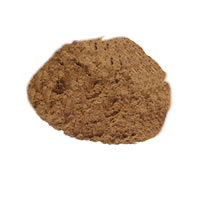Black Root Purchase & Information

Alternative Names
Bowman's Root, Beaumont Root, Culvers, Culveris Root, Culver's root, Culver’s Physic, Hini, Leptandra, Oxadoddy, Purple Leptandra, Physic Root, Racine Noire, Tall Veronica, Tall Speedwell, Véronicastre de Virginie, Veronica Virginica Root, Véronique de Virginie, Whorlywort CAUTION: Please refer to separate listing for Comfrey, Brooklime (Veronica beccabungo), Veronica (Veronica officinalis) and Indian Physic
Scientific Name
Veronicastrum Virginicum
Why Do People Use Black Root?
Orally, black root powder is utilized for disorders of the gallbladder and liver and also for chronic constipation. Veronicastrum virginicum (Black root) may also be used to treat bilious fever and as an emetic.
Is It Safe To Use?
Regarding safety of black root powder there is insufficient reliable information available.
Likely Unsafe for Pregnancy - It is unsafe in pregnancy when fresh black root is utilized orally. Teratogenic and abortifacient effects are observed when fresh black root is utilized. But there is no reliable proof for positive effects of consuming black root powder during pregnancy. Till further confirmations, Veronicastrum virginicum usage should be avoided during pregnancy.
Lactation - Avoid usage.
How Effective Is Black Root?
Regarding effectiveness of black root powder, there in insufficient reliable information available
How Black Root Works?
Most effective parts of Veronicastrum virginicum is its root and rhizome. Laxative, antiflatulent and bowel evacuant are some of the prominent properties of the root. It can trigger the bile flow into the intestine and induce sweating. It additionally consists of tannic acid, which possesses astringent properties that effect on GI mucosa.
What Are The Side Effects /Adverse Reactions of Black Root?
Black root powder can cause adverse effects when used orally like changes in stool odor or color, abdominal cramps or pain, headache, drowsiness, vomiting and nausea. After ingestion, hepatotoxicity has been observed in many cases.
How Black Root Interacts With Other Herbs and Supplements?
Horsetail - Combination of horsetail and back root powder could enhance the potential side effects of potassium depletion.
Licorice - Combination of licorice and back root powder could enhance the potential side effects of potassium depletion.
Stimulant Laxative Herbs - Potential side effects of potassium depletion could increase by using different stimulant laxative herbs. Stimulant laxative herbs are alder buckthorn, aloe, blue flag, black root, colocynth, butternut bark, fo ti, European buckthorn, gossypol, gamboge, jalap, greater bindweed, Mexican scammony root, manna, senna, yellow dock and rhubarb.
How Black Root Interacts With Drugs?
Digoxin (Lanoxin) - This interaction is of moderate nature. Abuse or over dosage of Veronicastrum virginicum can enhance the cardiac glycoside drugs potential side effects. While in gastrointestinal (GI) tract, it sticks chemically with glycosides that causes a decrease in its overall effectiveness.
Diuretic drugs - This interaction is of moderate nature. Excess usage of black root powder may agglomerate diuretic-induced potassium loss. There is some concern that individuals taking potassium depleting diuretics along black root powder may have more risks of hypokalemia. Clinical researches shown that by starting dosage of potassium supplements or in case of taking more quantity of potassium supplement can play vital role in some patients. A few diuretics that can drain potassium may chlorthalidone (Thalitone) chlorothiazide (Diuril), hydrochlorothiazide (Hydrodiuril, HCTZ and Microzide), furosemide (Lasix) and others.
WARFARIN (Coumadin) - This interaction is of moderate nature. In some cases, Veronicastrum virginicum can result in diarrhea. Diarrhea increases international normalized ratio (INR), increases the potential effects of warfarin and increases the bleeding risks. Patients should be advised that black root shouldn’t be used in excessive quantity with warfarin.
How Black Root Interacts With Foods?
Not known.
How Black Root Interacts With Lab Tests?
Not known.
How Black Root Interacts With Diseases and Conditions?
Gallstones/Bile Duct obstruction - Use of Veronicastrum virginicum can aggravate and therefore is contraindicated in these conditions.
Gastrointestinal (GI) inflammation - Due to emetic, irritant and stimulant laxative reactions, use black root is contraindicated in individauls with inflammation of GI tract.
Hemorrhoids - Contraindicated in this condition.
Menstruation - Contraindicated in this condition.
What Should Be the Dose/Administration of Black Root?
For oral consumption, most people normally boil 1 teaspoon of black root in hot water and steep for 30 minutes, this mixture is used as a tea. It is recommended that this tea should be taken as 1/3 cup before every meal. The extract of black root is used in dose of 2-4 drops mixed with water. In powdered form, it is used in a dosage of 1-4 grams.
Comments
In Canada and USA regions black root is produced and has nauseating and bitter taste.
General Certificate of Analysis (COA)
Specification sheet links below are a standard copy of the COA less the batch or lot number and manufactures dates. Specification sheet can be dated and should only be considered as a general information. Please contact and request an up to date COA if needed for specific updated information before placing order by filling out the contact form with product name and SKU number. If ordering quantities of twenty five kilos or more contact for availability.
